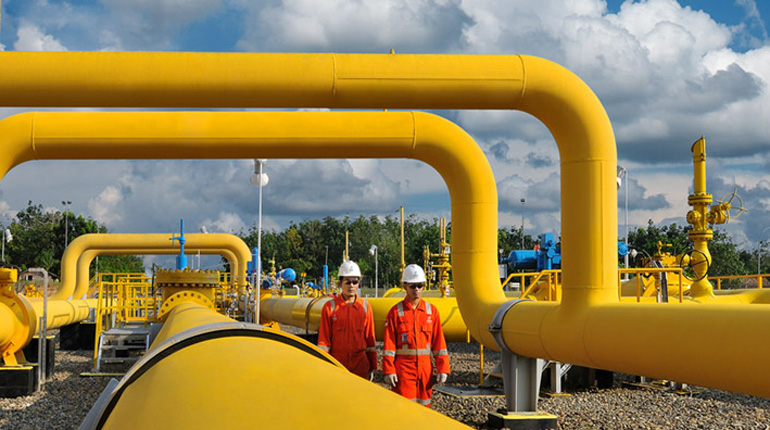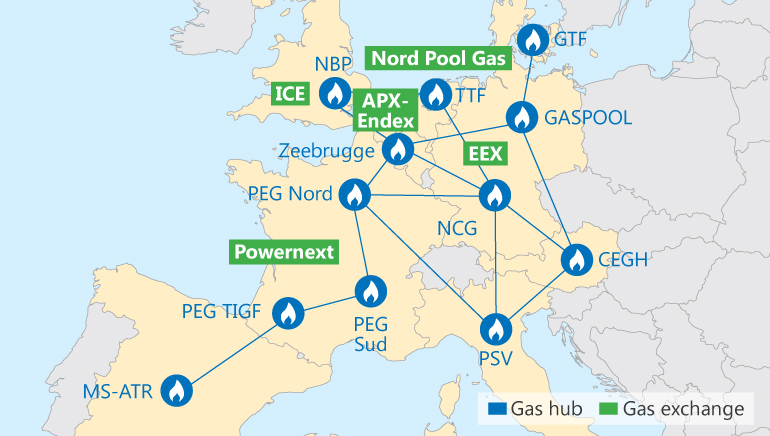 PGN infrastructure. Pertamina is set to acquire gas distributor PGN. (PGN)
PGN infrastructure. Pertamina is set to acquire gas distributor PGN. (PGN)
The concept of a gas aggregator is starting to take shape in Indonesia, with Pertamina set to acquire gas distributor Perusahaan Gas Negara (PGN) as part of a shake-up to make the market more competitive.
There have been concerns, particularly among IOCs, that the aggregator concept will be used to extract value from the upstream sector. But analysts believe the merger could be positive and improve gas price transparency in Indonesia.
The Ministry of State-owned Enterprises (SOEs) announced on 22 April that a new regulation would be issued by early July to group all state-owned oil and gas companies under Pertamina as the holding company. As part of the move, the NOC will acquire PGN. PGN will later be expected to acquire Pertamina’s gas distribution arm Pertagas to prevent any possible overlap in work areas.
Irfan Choudhry, managing director of energy consultancy Galway Group, told Interfax Natural Gas Daily that this was a positive move overall for the Indonesian energy sector. Indonesia’s energy needs are growing rapidly and new downstream infrastructure – including pipelines and LNG terminals – are needed across the archipelago.
"The issue today is that, with multiple government entities in the sector, there is often duplication of infrastructure development in many areas. A single entity across the energy sector would allow for more effective and integrated national energy planning and implementation of new infrastructure. This should translate into lower costs for the final consumers," he said.
Cutting margins
There is a big disconnect in Indonesia between the price producers sell their gas for, which is typically around $6-7/MMBtu, and what end-users pay, which is sometimes as much as $12-14/MMBtu, Pertamina’s Upstream Director Syamsu Alam told Interfax Natural Gas Daily.
"This needs to change. Indonesia needs to define a gas business mechanism that balances the whole value chain from the upstream and midstream to the end-user," Alam said.
"A $6 margin just to transport gas does not make sense. There must be a pricing regulation that ensures upstream players make a good return on their investment. Open access to infrastructure would help too," he added.
The margin is so big because the gas passes through several traders, which have allocations to buy gas from the government but do not own any physical infrastructure, before reaching the end buyer. Effectively, the end-user is buying gas third- or fourth-hand at an inflated price. But Alam hopes a new regulation that will allow only gas buyers that own infrastructure to participate in the market will help solve the problem.
Pertamina’s President Director Dwi Soetjipto told reporters that the merger would speed up investment in infrastructure and that end-users will benefit from cheaper gas prices. The energy ministry has estimated that approximately $32.42 billion is needed to finance pipeline development, gas station construction, liquefaction and regasification projects, and city gas networks, as well as LPG processing and distribution facilities.
Edi Saputra, an Indonesian gas markets specialist at energy research firm Wood Mackenzie, told Interfax Natural Gas Daily that the merger could help harmonise domestic gas prices as the holding company will be able to use a price pooling mechanism. However, combining PGN and Pertamina could cut competition and potentially create infrastructure access issues for third-party players, he added.
Upstream value
There is also concern among investors – including Chevron, ConocoPhillips, ExxonMobil, BP, Total, Shell and Inpex – that the aggregator concept could be used to extract value from their upstream positions.
For upstream companies, the key factor will be whether the government, through Pertamina and PGN, chooses to regulate consumer prices or midstream margins, according to Andrew Harwood, an upstream specialist at Wood Mackenzie.
"Regulating midstream margins would benefit end-users while leaving gas producers relatively unaffected. But regulating end-user prices could see the midstream operators try to maintain margins by squeezing the price paid to upstream suppliers," he told Interfax Natural Gas Daily.
William Simadiputra, a Jakarta-based analyst at research agency DBS Vickers, does not think the proposed combination of state gas players will be a key issue for the upstream sector as the government will not interfere with existing production-sharing contracts.
Simadiputra told Interfax Natural Gas Daily he had spoken to private Indonesian oil and gas company Medco Energi, and that he believes the lower gas-pricing initiatives will not hurt upstream contractors as the government will sacrifice its take if needed. The upstream players are protected by the PSCs, which can only be amended with the consent of both parties.
Ultimately, the gas aggregator concept will lead to more transparent pricing in Indonesia, Simadiputra said.







Talk to us
Natural Gas Daily welcomes your comments. Email us at [email protected].